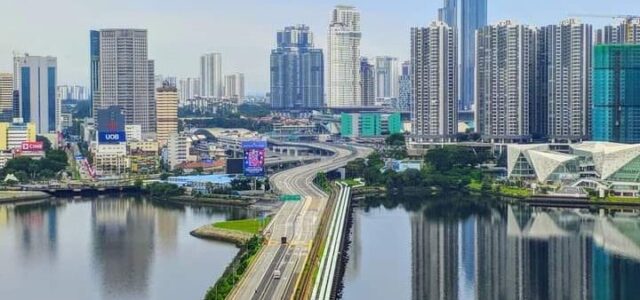Johor travel agencies urge return of 119 seized vehicles in Singapore, say fines already paid
johor-travel-agencies-urge-return-of-119-seized-vehicles-in-singapore-say-fines-already-paid
#Johor #travel #agencies #urge #return #seized #vehicles #Singapore #fines #paid,
JOHOR BAHRU: A group of Johor travel agencies is calling on Singapore’s Land Transport Authority (LTA) to return more than 119 Malaysian vehicles that have been seized since the start of this year, claiming that all outstanding fines have already been paid.
According to a report shared by Malaysia Gazette on Facebook, a representative of the affected companies, Dr Khairul Anuar Mohtar, 37, said that about half of the seized vehicles belonged to Johor travel agencies. With the crackdown, he argued, livelihoods have been disrupted.
Malay Mail reported that the group claimed that “their premium passenger vehicles and also Tourism Malaysia’s Hire & Drive licensed vehicles have lost up to 50% of income as they are unable to enter Singapore.”
For these drivers, these are more than seized vehicles — these are the backbone of their livelihoods, transporting workers, students, and tourists alike. Without these, their incomes end up getting slashed, and their families remain affected.
Netizens weigh in
The call for Singapore to return the seized vehicles has sparked a heated online debate. Many netizens are left divided over whether Johor agencies have a legitimate grievance or if this is simply a legal issue caused by people who fail to abide by the rules.
Those unsympathetic
Some were quick to defend Singapore’s strict enforcement, arguing that rules are rules.
“Perhaps you should know the rules better,” one commenter wrote, suggesting that Malaysian drivers had only themselves to blame for falling afoul of regulations.
Another added, “Our land, our laws.” The sentiment reflects a broader view that Singapore, with its famously strict regulations, should not relax enforcement just because the drivers are from across the border.
Others were blunter, pointing to everyday frustrations. “People in the Causeway don’t know how to queue,” one user said, drawing attention to traffic behaviour at the border as a reflection of the issue.
Another user asked: “Do you guys think LTA likes to seize for no reason?” These comments echo a common narrative: that Singapore’s regulatory bodies act systematically, and that vehicles seized probably have more to the story than just unpaid fines.
Those more understanding
On the other hand, some netizens offered explanations that painted a more complex picture.
“A Malaysia-registered car can be held or have difficulty returning to the country even after a fine is paid if the fine was not settled through the correct official channels, such as the official MyBayar PDRM website or app, leading to unupdated records, or if the car is also flagged for other outstanding issues not related to the paid fine.”
Another pointed out: “It is also possible the fine was for an offence that was not tracked by the system that prevents return, such as certain parking violations, or that there’s an error in the payment processing.”
These comments highlight a key frustration in cross-border enforcement: even when fines are paid, record mismatches, system delays, or separate jurisdictions can complicate matters. To some, this suggests the problem is not simply about “lawbreaking drivers” but about bureaucratic hiccups in coordinating between Malaysia and Singapore.
For now, these 119 vehicles remain in limbo. And as the online debate shows, public opinion is just as split as the two governments are likely to be: some see it as a matter of fairness and sovereignty, others as a human problem of livelihoods and red tape.
Read also: ‘Everyday it’s like this’: Netizens vent frustrations on Causeway traffic and share survival tips
